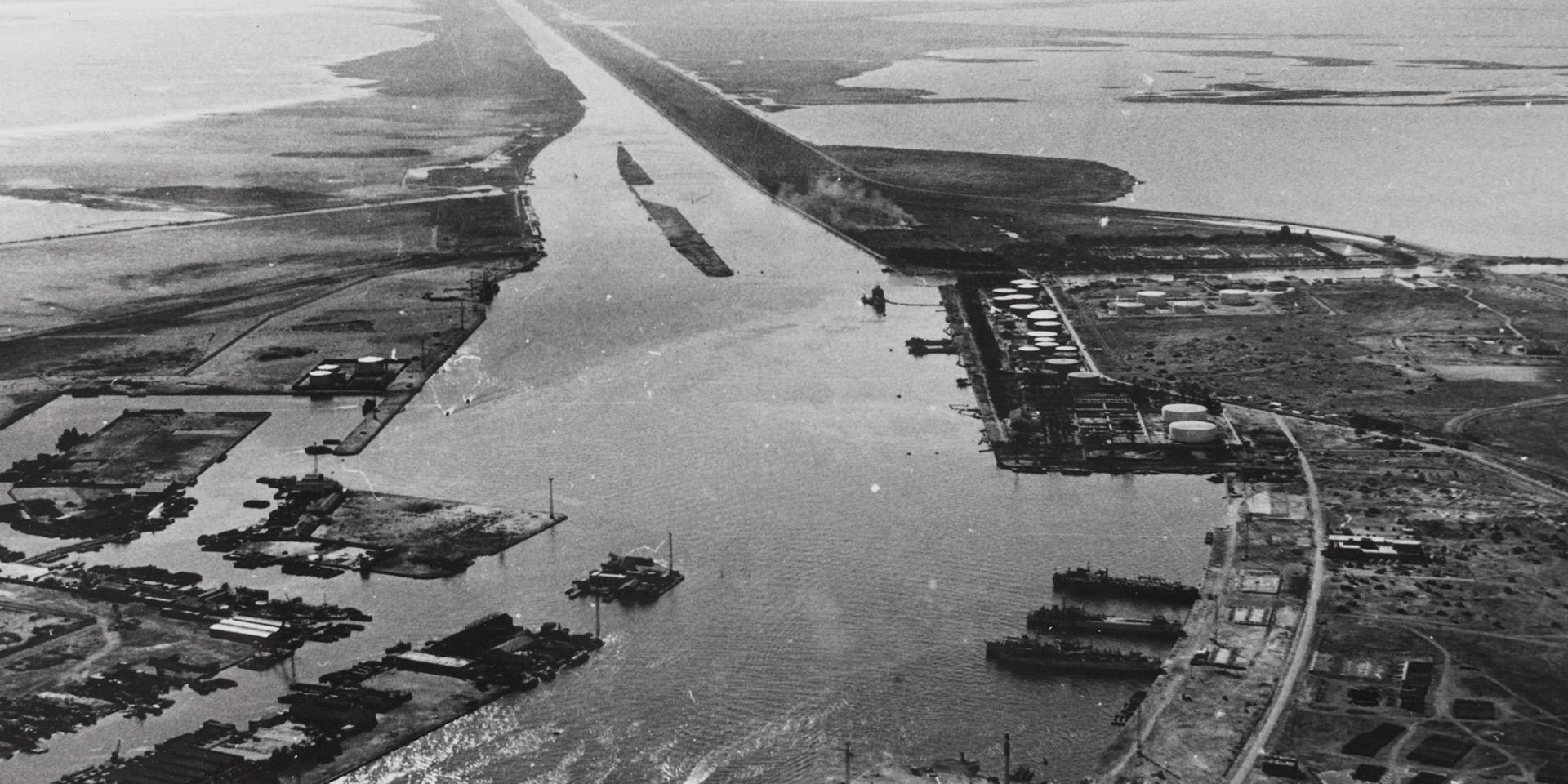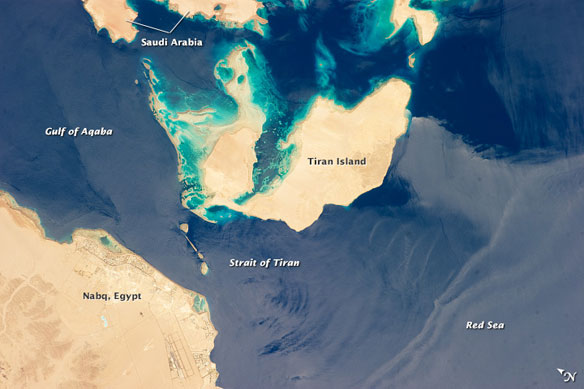Resolving the Suez Crisis:
Successful Debate & Diplomacy in the Cold War
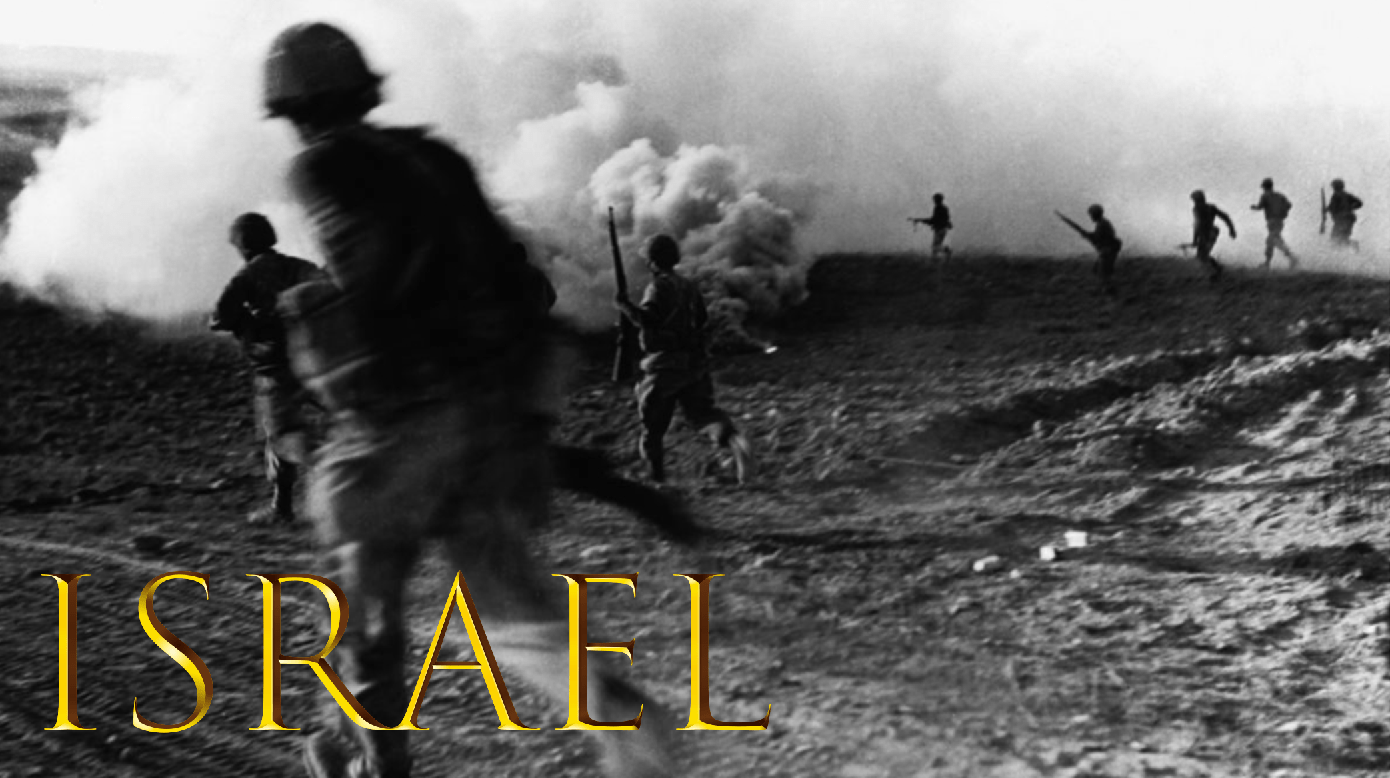
Israeli soldiers running through smoke, Operation Musketeer, HistoryNet.
Initial Arab-Israeli Tensions
Before the crisis, Egypt had disapproved of Israel’s existence, and they prevented shipping through the Straits of Tiran. Israeli Prime Minister David Ben-Gurion considered an attack on Egypt for months to stop their blockade, incentivizing him to join the Sévres Protocol.
"The injury inflicted upon and the danger posed to Israel by Egypt were not limited to the denial of our rights in the Suez Canal. For Israel's economy, both the present and the future freedom of navigation of the Red Sea from Eilat is no less vital than Suez."
~ Prime Minister David Ben-Gurion, 7 November 1956, Israel Ministry of Foreign Affairs

The Third Knesset, Knesset.gov.
Operation Kadesh

Operation Kadesh: Israeli tanks moving across the Sinai Peninsula, Israel Ministry of Foreign Affairs.
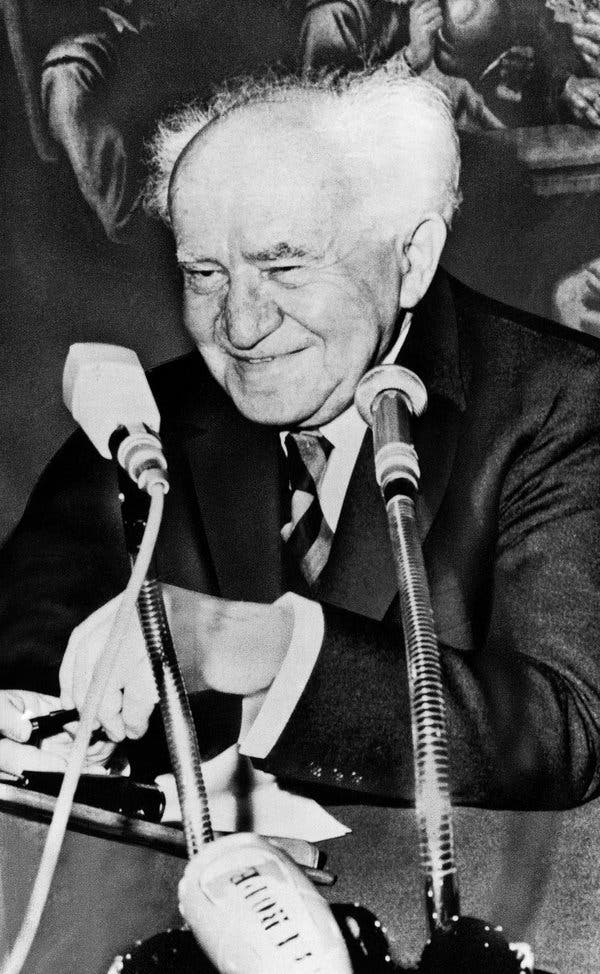
Prime Minister David Ben-Gurion, NY Times.
Damaged Sherman Tanks used by the Israeli military, 1956, Wikipedia.
Israel acted as aggressors in Operation Kadesh, allowing Britain and France to act as peacemakers. Prior to the French and British bombardment of Egypt, Israel invaded Gaza and the Sinai Peninsula, allowing them to capture Egypt within six days.
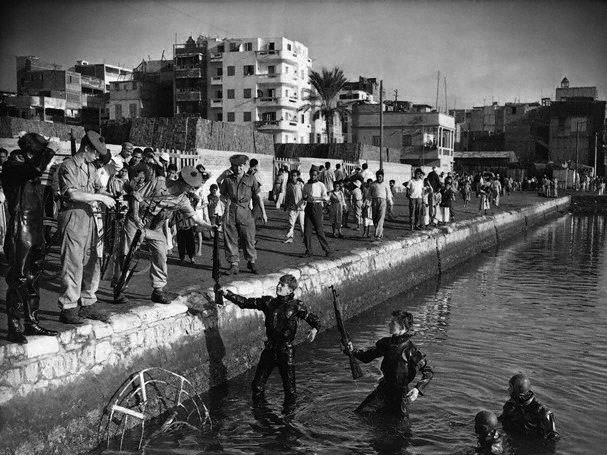
Allies take control and institute a ceasefire, 1956, Mcaudily Times.
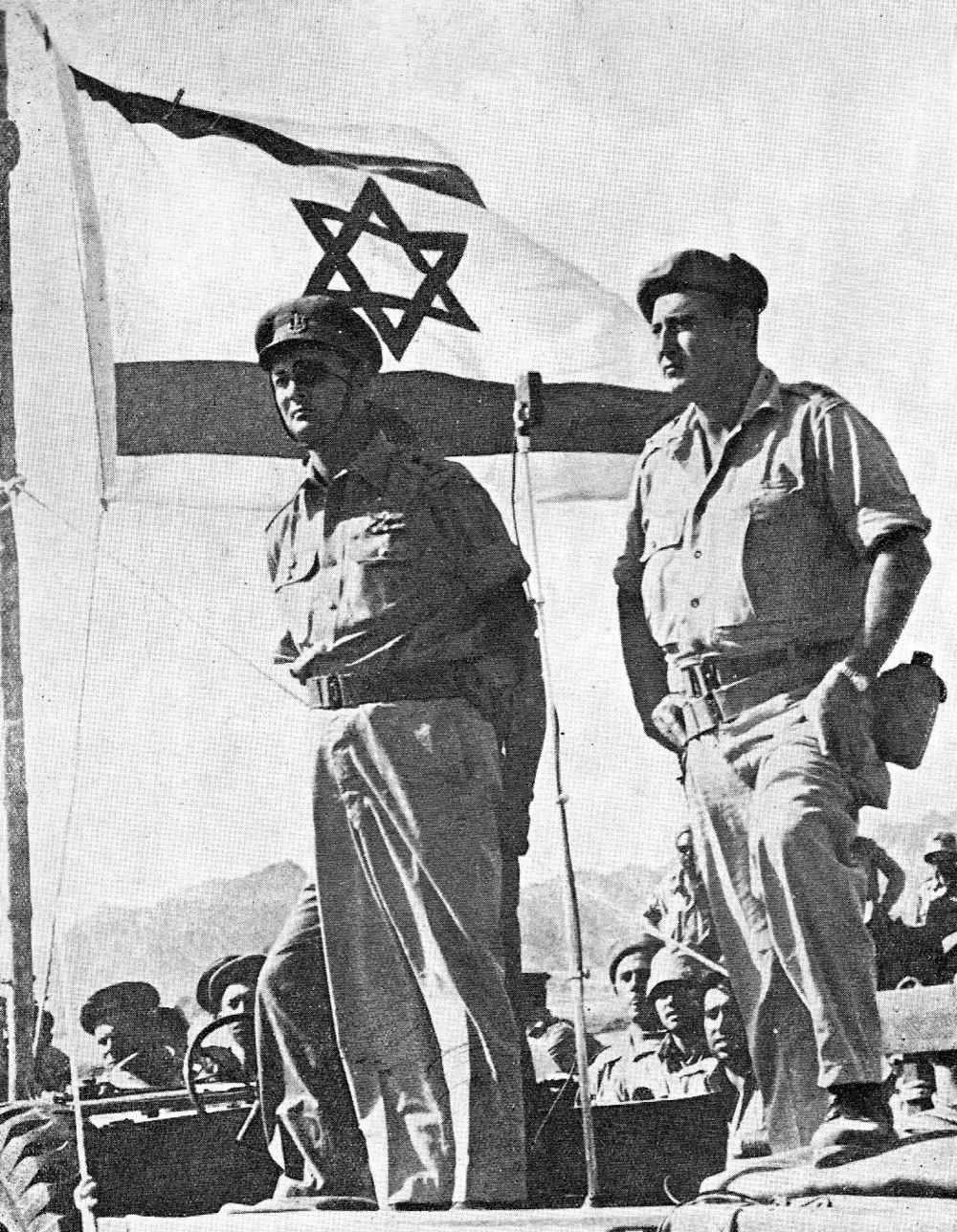
Moshe Dayan (left), Israeli Chief of Staff, with commander Avraham Yoffe, Military History.
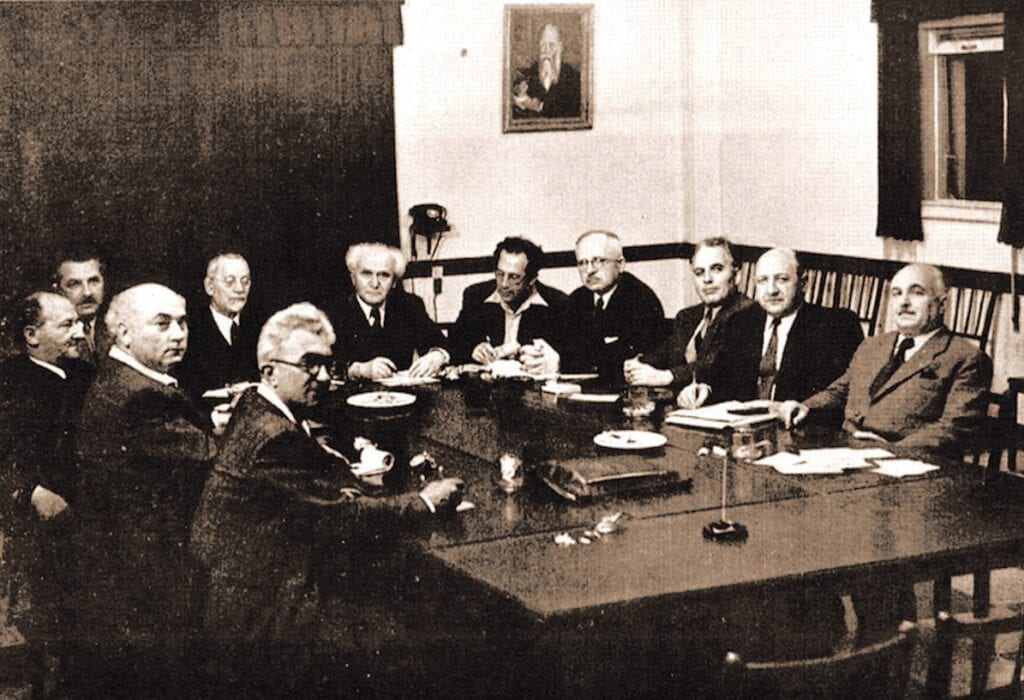
Prime Minister Ben-Gurion (middle) in a meeting with French and British Officials, The Jewish Advocate.
Foreign Minister Golda Meir, 1956, Fine Art America.
"Israel wants peace and neighbourly relations with Egypt under conditions of direct negotiations. It is to be hoped that all peace-loving and freedom-loving people will support Israel in this demand. We are also ready for peace negotiations with the other Arab States on condition that they respect the armistice lines. Israel will not attack the Arab States, but if attacked will strike back."
~ David Ben-Gurion, 7 November 1956, Israel Ministry of Foreign Affairs
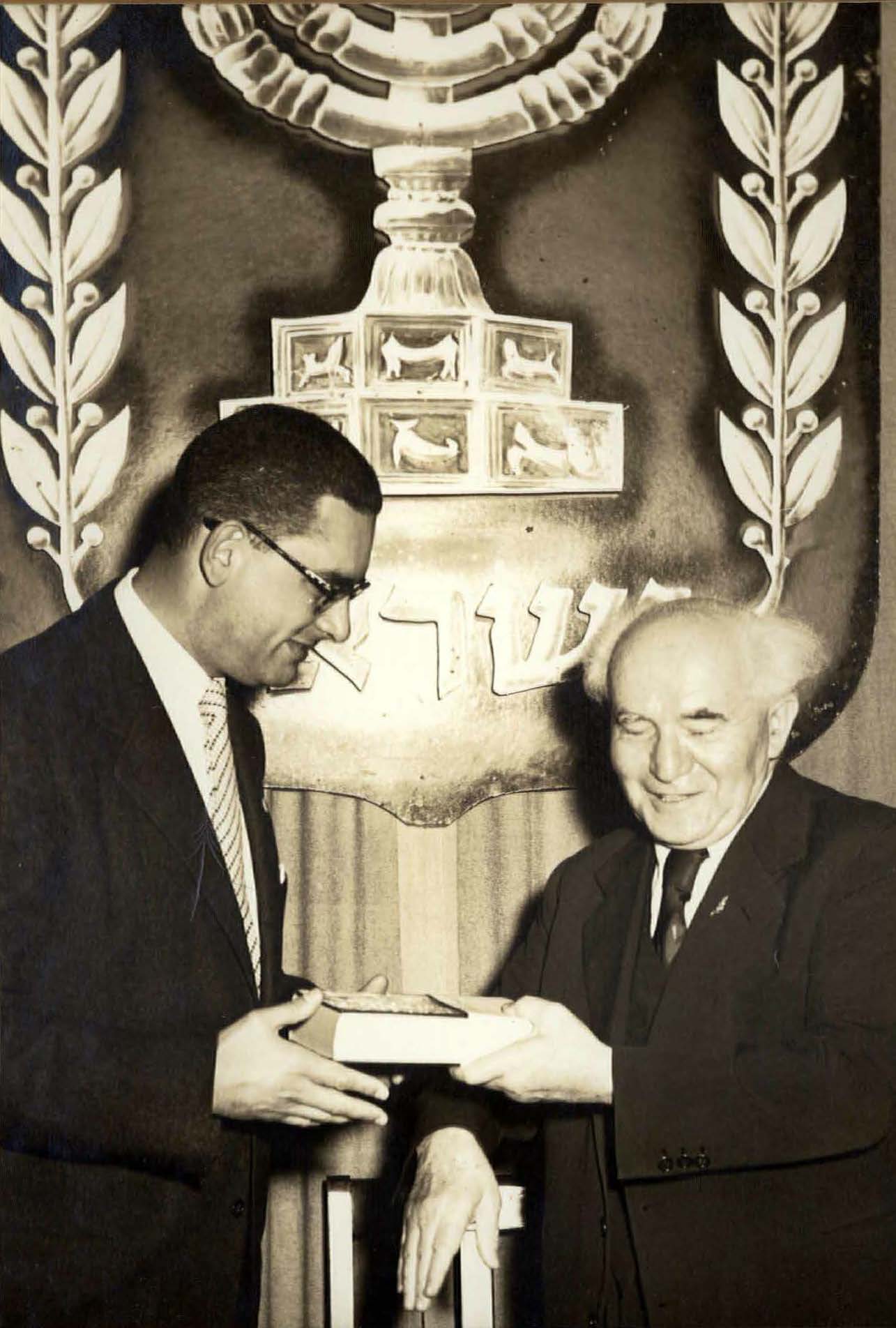
Prime Minister Ben-Gurion, 1955, The Jewish Archives.
United Nations' Response

British newspaper highlighting US response, 29 October 1956, Mirror News.
However, they failed to diplomatically debate the necessity of their cause to the UN Security Council and General Assembly. The UN condemned this use of force, ushering in Danish peacekeeping operations; the USSR also threatened nuclear repercussions.
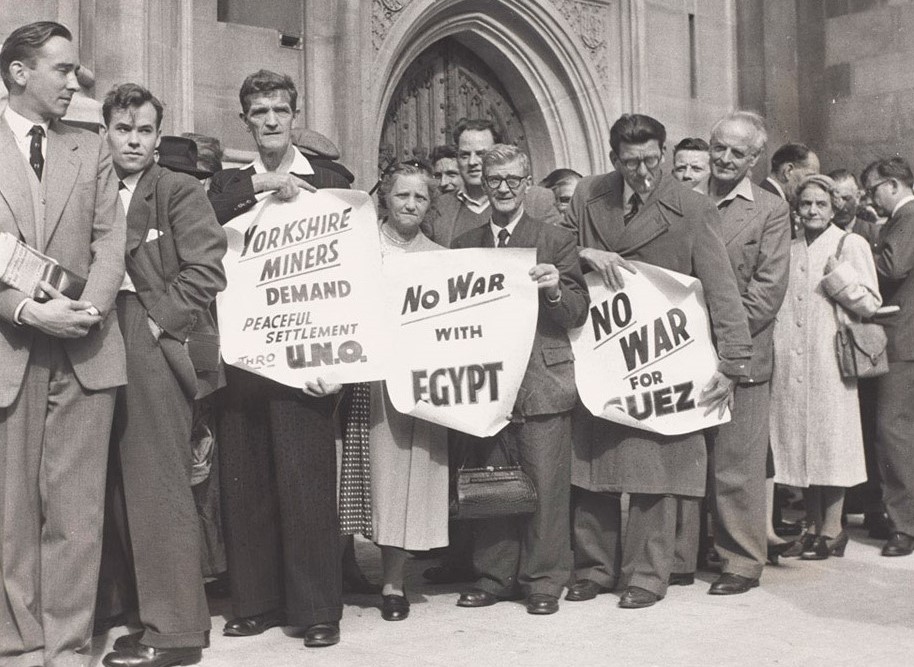
Citizens protesting outside Parliment, 1956, UK National Army Museum.
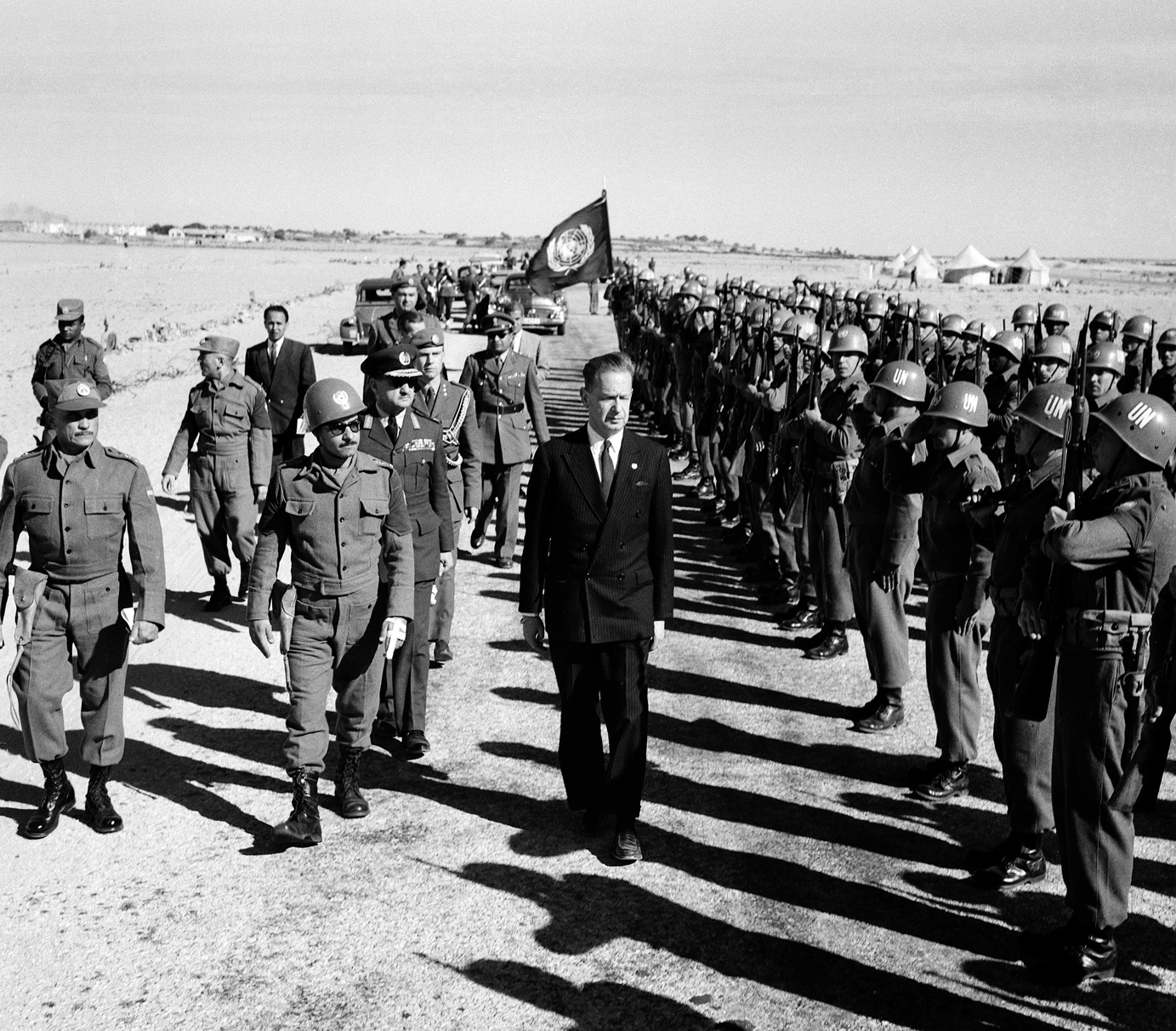
UN Peacekeeping force led by Dag Hammarskjöld, United Nations.
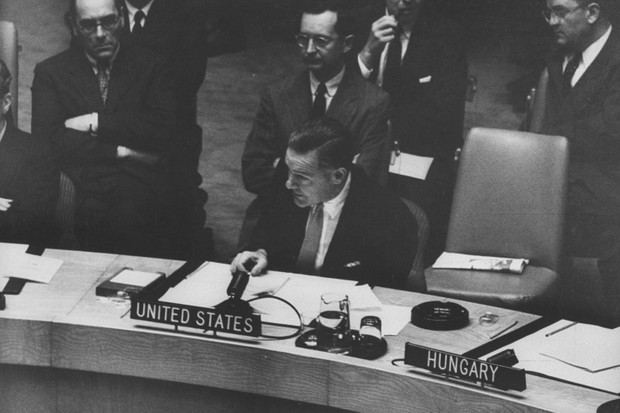
United States UN Representative during the Suez Crisis, 1956, History Extra.
